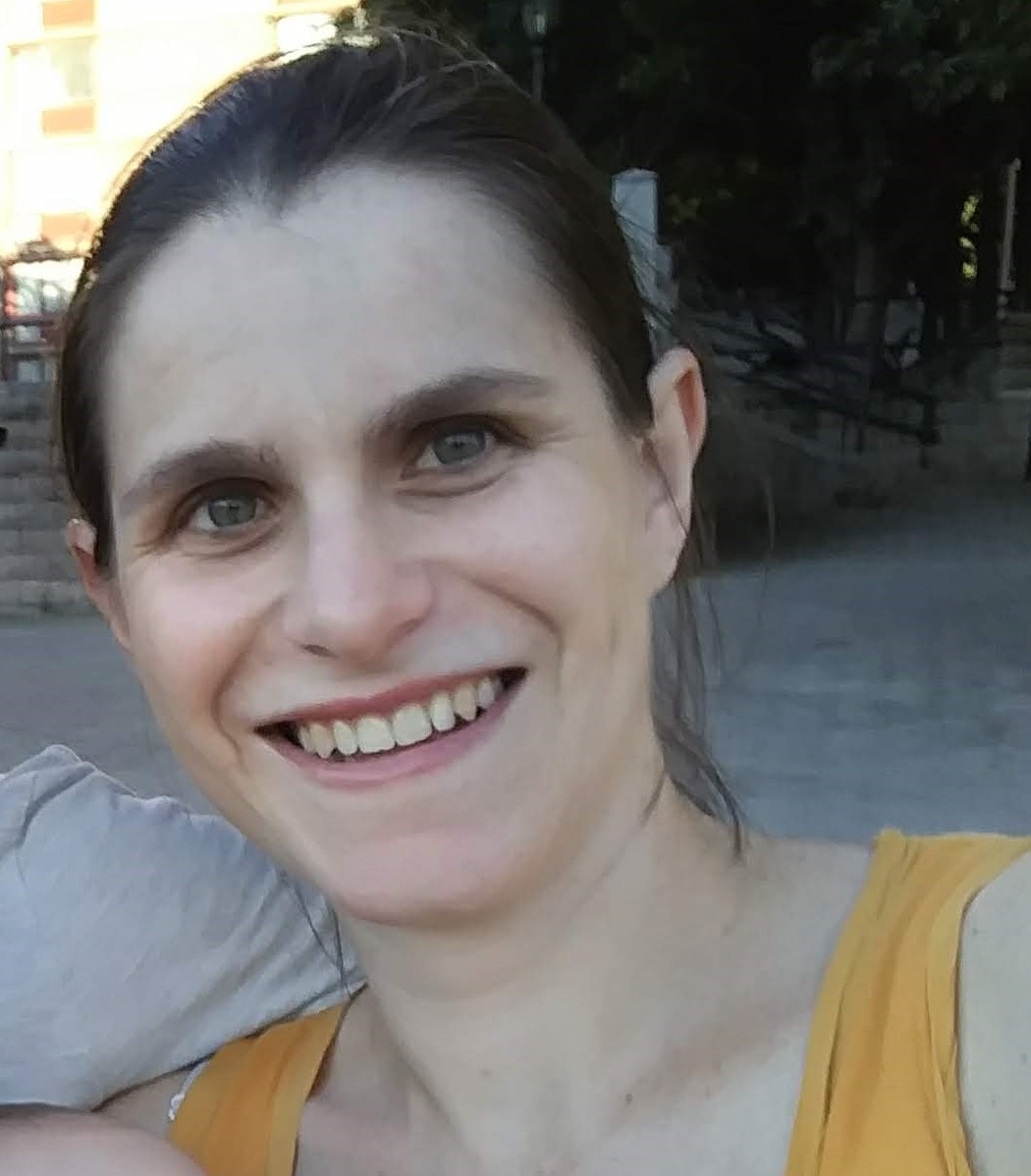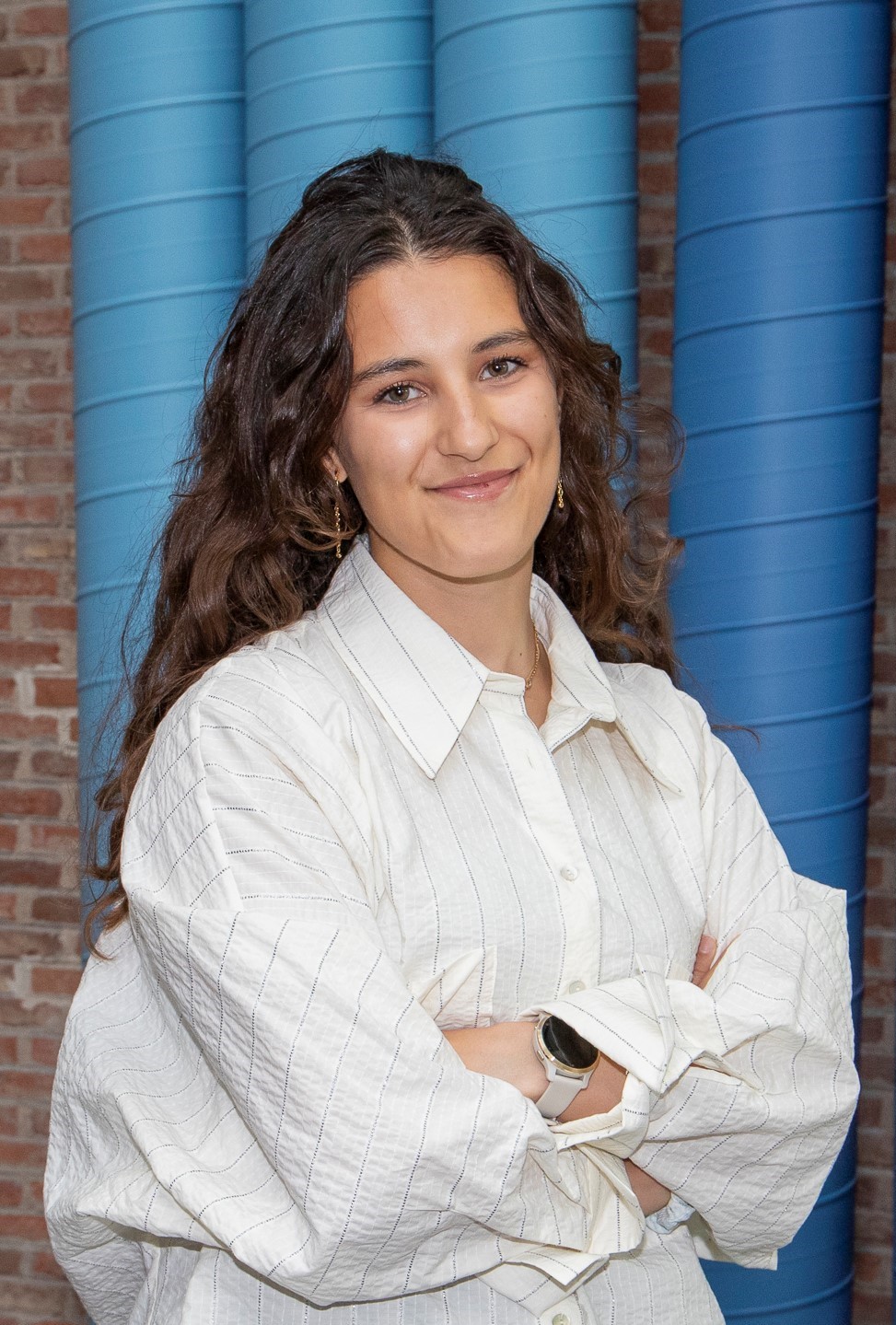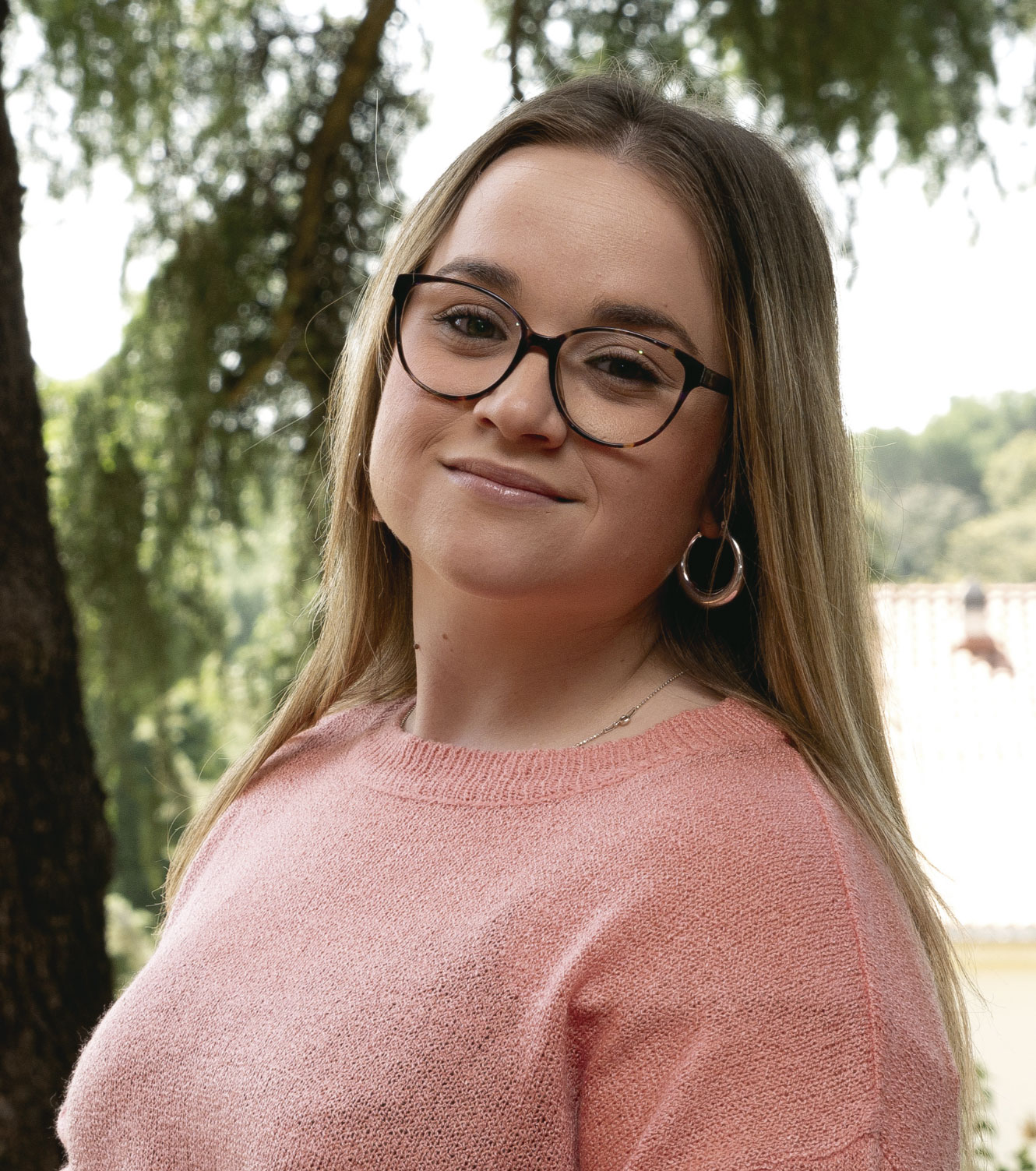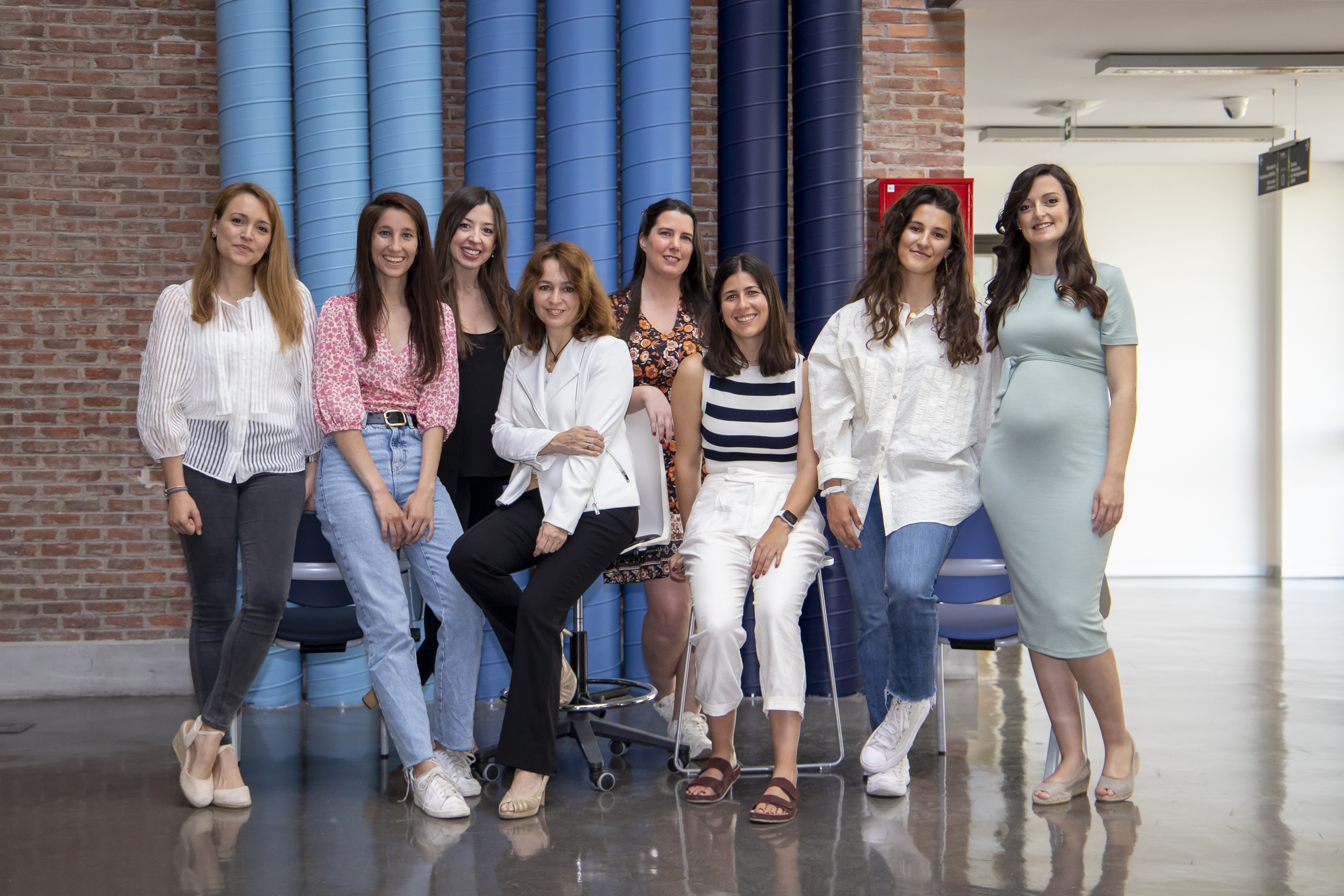Research Program. Precision Nutrition and Cancer
Molecular Oncology Group
Objectives: The group is currently focused on three research topics:
1. Lipid metabolism alterations in cancer: identification of new biomarkers and therapeutic targets in diet-related tumors such as colon or pancreatic cancer. We are especially interested in identifying metabolic profiles associated to the disease progression together with treatment response and analysing their role from in-vitro cell systems to organoids and cancer patients. These analyses are mainly focused on the identification of metabolic pathways and distinctive oncometabolites that may constitute novel markers and targets for the development of future cancer precision therapies.
2. Metabolic reprogramming analysis in cancer and its relationship with other associated diseases such as obesity. We are interested in the molecular basis underlying the link between obesity and cancer, especially on the role of fatty acid metabolism and cholesterol reprogramming and the tumor progression.
3. Precision nutrition strategies in cancer. Analysis of the activity and mechanism of action of bioactive compounds and natural extracts as possible effective dietary supplements in the prevention and treatment of cancer and associated metabolic disorders. The objective is to establish the scientific basis for the development of precision nutrition strategies in oncology by including or avoiding specific products due to their effect on specific cancer signaling pathways.
Coordinator of Precision Nutrition and Cancer Lab
Members
Dr. Lara P. Fernández Álvarez
Postdoctoral researcher
 Lara P. Fernández Álvarez, obtained her PhD in Biochemistry, Molecular Biology and Biomedicine from the Autonomous University of Madrid (UAM) and the Spanish National Cancer Research Centre (CNIO), Spain, in 2009. Her thesis focused on the characterization of genetic susceptibility to malignant melanoma. Since 2010, she had conducted postdoctoral research at the Molecular and Cell Biology of the Thyroid group in the Biomedical Research Institute (IIBm-CSIC-UAM), in Madrid. In December 2014 she joined IMDEA Molecular Oncology Cancer Group where her research is focused on the study of molecular biomarkers of cancer risk, prognostic factors and resistance to treatment. She has a solid and multidisciplinary professional experience in Cancer biology, Cancer Susceptibility, Oncology, Melanoma, Human Genetics and Molecular Endocrinology. Additionally, she has published more than twenty research articles in international journals, thirteen of them as first author.
Lara P. Fernández Álvarez, obtained her PhD in Biochemistry, Molecular Biology and Biomedicine from the Autonomous University of Madrid (UAM) and the Spanish National Cancer Research Centre (CNIO), Spain, in 2009. Her thesis focused on the characterization of genetic susceptibility to malignant melanoma. Since 2010, she had conducted postdoctoral research at the Molecular and Cell Biology of the Thyroid group in the Biomedical Research Institute (IIBm-CSIC-UAM), in Madrid. In December 2014 she joined IMDEA Molecular Oncology Cancer Group where her research is focused on the study of molecular biomarkers of cancer risk, prognostic factors and resistance to treatment. She has a solid and multidisciplinary professional experience in Cancer biology, Cancer Susceptibility, Oncology, Melanoma, Human Genetics and Molecular Endocrinology. Additionally, she has published more than twenty research articles in international journals, thirteen of them as first author.
Email: lara.fernandez@imdea.org
Phone: +34 91 727 81 00, ext. 212
Silvia Cruz Gil
Lab Technician
 Silvia Cruz Gil obtained her Biochemistry Degree at Universidad Complutense de Madrid in 2013. During the last two years of her degree she collaborated with the Biochemistry II Department at Pharmacy School in Universidad Complutense de Madrid studying the molecular biology of hepatocellular carcinoma. Later, she continued her training by obtaining a Master in Molecular Biosciences at Universidad Autónoma de Madrid in 2014. Meanwhile, Silvia joined ALGENEX (Alternative Gene Expression S.L.) in association with I.N.I.A. (National Institute of Agricultural and Food Research and Technology) for an internship. During this period she worked in the development of vectored vaccines. In October 2014, she started studies conductive to her PhD Degree at IMDEA Food Institute in the Molecular Oncology Group. Her research primarily focuses on the role of the lipid metabolism in tumor progression. In April 2016 she obtained a Boehringer Ingelheim Travel Grant to perform a short research stage in the University Hospital Carl Gustav Carus(Dresden, Germany) to learn organoids technique under the supervision of Dr. Daniel Stange. Her thesis oral defense was entitled “Lipid metabolism alterations in colorectal cancer: potential clinical relevance in the prognosis of the disease”.
Silvia Cruz Gil obtained her Biochemistry Degree at Universidad Complutense de Madrid in 2013. During the last two years of her degree she collaborated with the Biochemistry II Department at Pharmacy School in Universidad Complutense de Madrid studying the molecular biology of hepatocellular carcinoma. Later, she continued her training by obtaining a Master in Molecular Biosciences at Universidad Autónoma de Madrid in 2014. Meanwhile, Silvia joined ALGENEX (Alternative Gene Expression S.L.) in association with I.N.I.A. (National Institute of Agricultural and Food Research and Technology) for an internship. During this period she worked in the development of vectored vaccines. In October 2014, she started studies conductive to her PhD Degree at IMDEA Food Institute in the Molecular Oncology Group. Her research primarily focuses on the role of the lipid metabolism in tumor progression. In April 2016 she obtained a Boehringer Ingelheim Travel Grant to perform a short research stage in the University Hospital Carl Gustav Carus(Dresden, Germany) to learn organoids technique under the supervision of Dr. Daniel Stange. Her thesis oral defense was entitled “Lipid metabolism alterations in colorectal cancer: potential clinical relevance in the prognosis of the disease”.
Email: silvia.cruz@imdea.org
Phone: +34 91 727 81 00
Cristina María Fernández
 Cristina Mª Fernández Díaz obtained her PhD in Biomedical Research from the University of Valladolid and the Institute of Biology and Molecular Genetics (IBGM) in 2019. She also holds a degree in Human Nutrition and Dietetics and two master's degrees in Biomedical Research and Nutrition. Her thesis focused on the targeting of proteolytic enzymes in the course of diabetes mellitus and other metabolic diseases. In 2018 she was awarded with an European Molecular Biology Organization (EMBO) Short-Term Fellowship to learn new metabolic analysis techniques at the Oxford Center for Diabetes, Endocrinology and Metabolism, University of Oxford (Oxford, UK) under the supervision of Dr. Patrik Rorsman. She has published several peer-review manuscripts in high impact international journals in the area of metabolism and nutrition. In June 2020 she joined the Molecular Oncology and Nutritional Genomics of Cancer Group (Precision Nutrition and Cancer) at IMDEA Food Institute, where she focuses her research on the study of metabolic alterations in chronic diseases such as obesity and cancer. Additionally, she explores gene-nutrient interactions applied to the prevention of pathologies and health promotion.
Cristina Mª Fernández Díaz obtained her PhD in Biomedical Research from the University of Valladolid and the Institute of Biology and Molecular Genetics (IBGM) in 2019. She also holds a degree in Human Nutrition and Dietetics and two master's degrees in Biomedical Research and Nutrition. Her thesis focused on the targeting of proteolytic enzymes in the course of diabetes mellitus and other metabolic diseases. In 2018 she was awarded with an European Molecular Biology Organization (EMBO) Short-Term Fellowship to learn new metabolic analysis techniques at the Oxford Center for Diabetes, Endocrinology and Metabolism, University of Oxford (Oxford, UK) under the supervision of Dr. Patrik Rorsman. She has published several peer-review manuscripts in high impact international journals in the area of metabolism and nutrition. In June 2020 she joined the Molecular Oncology and Nutritional Genomics of Cancer Group (Precision Nutrition and Cancer) at IMDEA Food Institute, where she focuses her research on the study of metabolic alterations in chronic diseases such as obesity and cancer. Additionally, she explores gene-nutrient interactions applied to the prevention of pathologies and health promotion.
Email:cristinamaria.fernandez@imdea.org
Phone: +34 91 727 81 00
Maria Elena Rodríguez
Senior researcher and Head of Research Line in Thyroid Cancer
 Dr. Maria ER Garcia-Rendueles' career has been devoted to investigating thyroid tumorigenesis and tumor progression by using multidisciplinary genetic, biochemical, and cell biological approaches to understand the functional consequences of the key drivers of the disease. She has been focused on identifying potential targets and new approaches based on this dependency on new therapies. She obtained her Ph.D. with honors in 2011 by Universidad de Santiago de Compostela, Spain. In 2012, she received a Postdoctoral Fellowship from the Ministry of Education of Spain and joined Memorial Sloan Kettering Cancer Center (MSKCC) in New York, where she was promoted to Research Associate in 2016. She has published in highest impact journals, including Cancer Discovery, JCI, Oncogene, or Clinical Cancer Research. She joined IMDEA in June 2020 as an independent investigator where she continues investigating the pathogenesis and the biology of thyroid cancers to identify new molecular-based therapies, under the funding of a Talento’s Fellowship.
Dr. Maria ER Garcia-Rendueles' career has been devoted to investigating thyroid tumorigenesis and tumor progression by using multidisciplinary genetic, biochemical, and cell biological approaches to understand the functional consequences of the key drivers of the disease. She has been focused on identifying potential targets and new approaches based on this dependency on new therapies. She obtained her Ph.D. with honors in 2011 by Universidad de Santiago de Compostela, Spain. In 2012, she received a Postdoctoral Fellowship from the Ministry of Education of Spain and joined Memorial Sloan Kettering Cancer Center (MSKCC) in New York, where she was promoted to Research Associate in 2016. She has published in highest impact journals, including Cancer Discovery, JCI, Oncogene, or Clinical Cancer Research. She joined IMDEA in June 2020 as an independent investigator where she continues investigating the pathogenesis and the biology of thyroid cancers to identify new molecular-based therapies, under the funding of a Talento’s Fellowship.
Email: mariaelena.rodriguez@imdea.org
Phone: +34 91 727 81 00
Sofía Gutiérrez Rodríguez
Predoctoral Researcher Industrial Doctorate Project

Email:forchronic.sofia@imdea.org
Phone: +34 91 727 81 00
Rocío Moreno
Predoctoral Researcher Industrial Doctorate Project

Email:forchronic.rocio@imdea.org
Phone: +34 91 727 81 00
Guadalupe Bazán
Predoctoral Researcher Industrial Doctorate Project

Email: forchronic.guadalupe@imdea.org
Phone: +34 91 727 81 00
Sonia Wagner
Predoctoral Researcher Industrial Doctorate Project

Email: sonia.wagner@imdea.org
Phone: +34 91 727 81 00
Students
Emma Cantero Bahillo
Nieves Siles Sánchez
Leire Azcona
Bacbuin Larry
| most relevant publications |
|
| main research grants |
|
Participant Investigator: Ana Ramírez de Molina Project Title: Fórmulas nutricionales altamente efectivas para el control de la enfermedad crónica (FORDISCOVERY) ___________ Participant Investigator: Ana Ramírez de Molina ___________ Principal Investigator: Ana Ramírez de Molina ___________ Participant Investigator: Ana Ramírez de Molina ___________ Master contact and program coordinator: Ana Ramírez de Molina ___________ Participant Investigator: Ana Ramírez de Molina ___________ |

